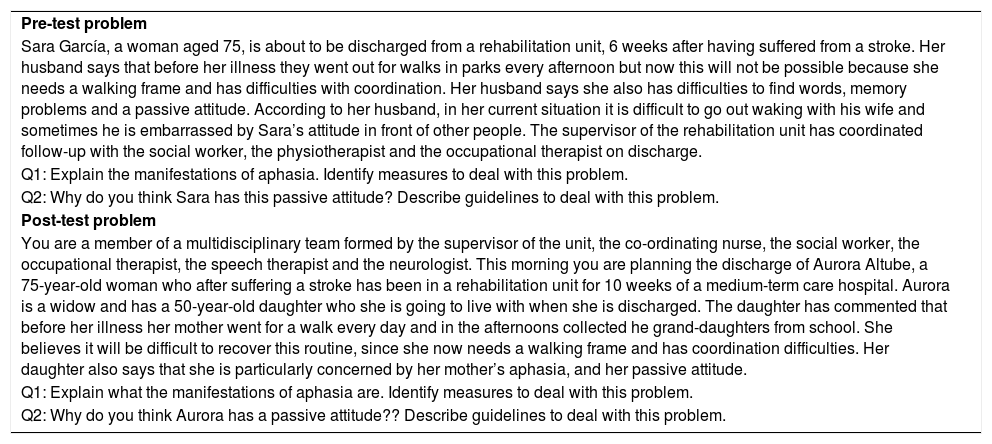To obtain a vision of nursing students’ learning, exploring difficulties concerning understanding stroke care delivery when apathy occurs.
MethodsMixed methods research combining a quantitative research method with a pre-experimental one group pretest-posttest design and a qualitative research method with a phenomenographic descriptive design. Data was collected from written self-assessments (pretest; n = 83) and exam papers (posttest; n = 82) completed by third-year nursing students enrolled in the 2016−17 academic year in one Nursing School in Spain.
ResultsThe analysis revealed three conceptions in relation to understanding stroke care delivery when apathy occurs: (A) apathy as a multi-causal response; (B) apathy as a reactive psychological response; (C) apathy as a result of brain injury.
ConclusionsThe analysis of conceptions in this research has shown that the percentage of students arguing apathy based on one single factor did not vary from pretest to posttest. The relationship between functional loss and reactive psychological answers was the abounding argument. Identification of conceptions will allow nurse educators to design evidence-based teaching-learning strategies focused on difficulties in stroke care delivery among undergraduate nursing students. Likewise, it will help to enhance the quality of care delivered by future nurses, improving these patients’ quality of life.
Obtener una visión del aprendizaje de los estudiantes de enfermería, identificando dificultades en relación al manejo de la apatía en una persona que ha sufrido un ictus.
MétodoInvestigación con métodos mixtos combinando un método de investigación cuantitativa con diseño preexperimental pretest-postest de un solo grupo y un método de investigación cualitativa con diseño descriptivo fenomenográfico. Los datos se recogieron a partir de las pruebas escritas de autoevaluación (pretest; n = 83) y de evaluación final (postest; n = 82) de los estudiantes de tercer curso de enfermería matriculados durante el curso académico 2016/17 en una universidad española.
ResultadosDel análisis de los datos surgieron tres concepciones en relación a la comprensión de los estudiantes sobre el cuidado al paciente que tras sufrir un ictus presenta apatía: A) apatía como respuesta de naturaleza multicausal; B) apatía como respuesta psicológica reactiva; C) apatía como consecuencia de la lesión cerebral.
ConclusionesEl análisis de las concepciones elaboradas en esta investigación demostró que el porcentaje de estudiantes que argumentó la apatía en base a un solo factor no varió del pretest al postest, siendo el argumento más utilizado la relación entre pérdida de funcionalidad y las respuestas psicológicas reactivas. La identificación de dificultades de aprendizaje permitirá diseñar secuencias de enseñanza-aprendizaje adaptadas a las dificultades que presenta el alumnado de enfermería en el tema de los cuidados al paciente que ha sufrido un ictus y así poder contribuir a que los futuros profesionales de enfermería puedan garantizar un cuidado de calidad.
Article
Diríjase al área privada de socios de la web de la SEDENE, (https://sedene.com/revista-de-sedene/ ) y autentifíquese.








